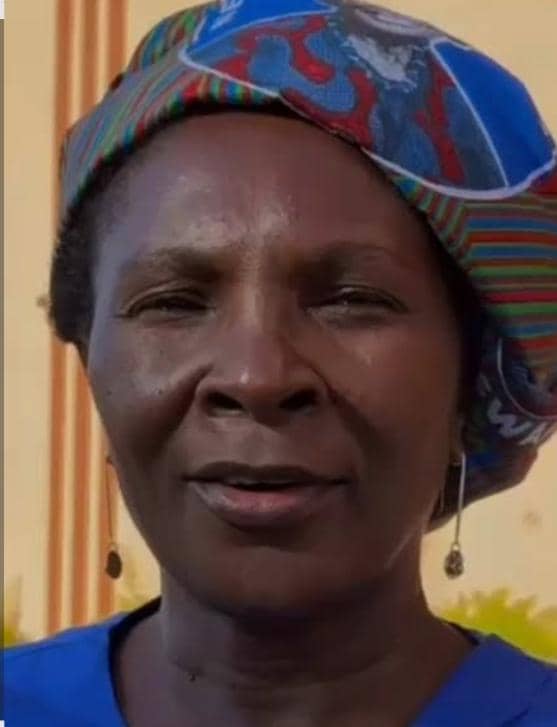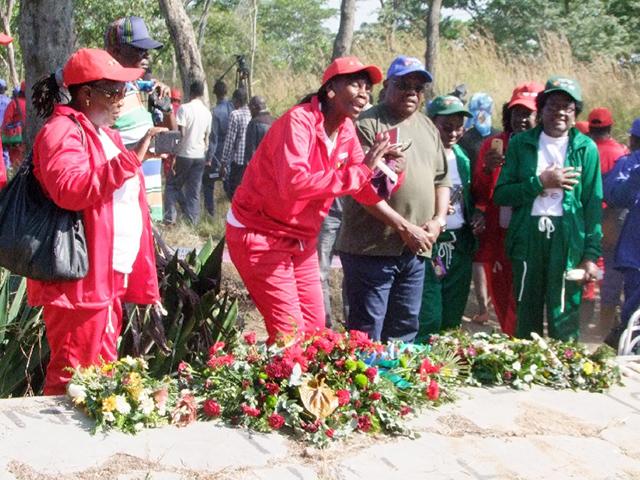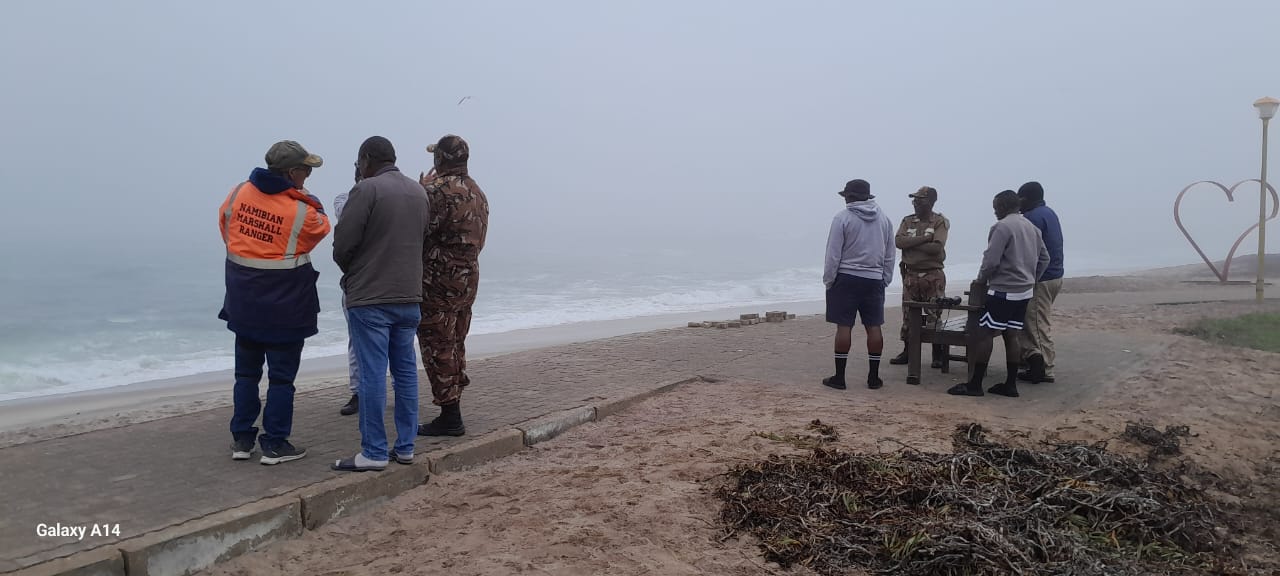THE rising number of orphans and vulnerable children in the six northern regions are assured of food aid until the end of 2007 – thanks to an agreement between Government and the World Food Programme.
Government said it requested the assistance of the WFP given the many needs of orphans it is trying to meet. “The Government recognises the ongoing needs of these vulnerable children who have been seriously affected by the HIV-AIDS pandemic in Namibia and is committed to providing them with the assistance they so badly need,” said Gabriel Kangowa, the Deputy Director of the Emergency Management Unit.Kangowa told The Namibian yesterday that distribution systems had to be improved before aid could be delivered.This comes in the light of a discovery at a military warehouse in Katima Mulilo earlier this week, where more than 18 000 bags of maize meal were left to rot instead of being delivered to victims of last year’s floods.”We want to redesign the whole process and divide the responsibilities.We also want to bring in other stakeholders like the Ministry of Gender Equality and Child Welfare,” said Kangowa.”It is good news [that Namibia will receive food aid], but we must be well organised in terms of logistics, so that we can be sure that those who need the assistance most are the ones who receive it.”The new WFP country director for Namibia, John Prout, said the WFP would integrate the most needy children from the six northern regions into a regional operation aimed at assisting populations across southern Africa who are vulnerable to food insecurity and the impact of HIV-AIDS.”We recognise the devastating impact that the HIV-AIDS pandemic is having on the needs of these orphans and vulnerable children in Namibia and we will do our best to support the Government of Namibia in meeting these very real needs,” Prout said in a statement issued yesterday.While the WFP provides the maize meal, cooking oil and a soy blend, the EMU is responsible for transporting the food and the associated costs of fuel and allowances for drivers.A meeting was already held at Rundu last month to discuss improving registration and distributing of aid to the vulnerable.Kangowa said the number of beneficiaries was growing daily and it was difficult to ascertain exactly how many children were receiving food aid.”People are flocking daily to our offices to register.Every day the number of orphans grows,” he told The Namibian.It is estimated that between 60 000 and 70 000 children have been receiving aid through the current programme – roughly 10 000 children in each of the Ohangwena, Omusati, Oshana, Oshikoto, Okavango and Caprivi regions.A year ago, the WFP began supporting these children in response to the emergency drought appeal issued by Government at the end of 2003.This programme ends on June 30.Kangowa said Government would have to look at providing more appropriate transport to travel to hard-to-reach areas, especially in the Kavango and Caprivi.Although Government has not made a drought appeal this year, REMUs across the country are supposed to be delivering more than 2000 tons of rice donated by the Indian Government to needy people trying to overcome the effects of the last drought.The Otjozondjupa region has already finished delivering its consignment of rice.On Monday, workers at Katima Mulilo were stacking hundreds of bags of rice alongside stacks of maize meal, which the REMU had failed to deliver because they were allegedly not being paid overtime to do so.Kangowa said investigations into this matter were continuing and he told The Namibian that he was determined to get to the bottom of reports that someone gave orders to stop aid deliveries after a letter from the Prime Minister’s office in September put a stop to overtime claims.”The Government recognises the ongoing needs of these vulnerable children who have been seriously affected by the HIV-AIDS pandemic in Namibia and is committed to providing them with the assistance they so badly need,” said Gabriel Kangowa, the Deputy Director of the Emergency Management Unit.Kangowa told The Namibian yesterday that distribution systems had to be improved before aid could be delivered.This comes in the light of a discovery at a military warehouse in Katima Mulilo earlier this week, where more than 18 000 bags of maize meal were left to rot instead of being delivered to victims of last year’s floods.”We want to redesign the whole process and divide the responsibilities.We also want to bring in other stakeholders like the Ministry of Gender Equality and Child Welfare,” said Kangowa.”It is good news [that Namibia will receive food aid], but we must be well organised in terms of logistics, so that we can be sure that those who need the assistance most are the ones who receive it.”The new WFP country director for Namibia, John Prout, said the WFP would integrate the most needy children from the six northern regions into a regional operation aimed at assisting populations across southern Africa who are vulnerable to food insecurity and the impact of HIV-AIDS.”We recognise the devastating impact that the HIV-AIDS pandemic is having on the needs of these orphans and vulnerable children in Namibia and we will do our best to support the Government of Namibia in meeting these very real needs,” Prout said in a statement issued yesterday.While the WFP provides the maize meal, cooking oil and a soy blend, the EMU is responsible for transporting the food and the associated costs of fuel and allowances for drivers.A meeting was already held at Rundu last month to discuss improving registration and distributing of aid to the vulnerable.Kangowa said the number of beneficiaries was growing daily and it was difficult to ascertain exactly how many children were receiving food aid.”People are flocking daily to our offices to register.Every day the number of orphans grows,” he told The Namibian.It is estimated that between 60 000 and 70 000 children have been receiving aid through the current programme – roughly 10 000 children in each of the Ohangwena, Omusati, Oshana, Oshikoto, Okavango and Caprivi regions.A year ago, the WFP began supporting these children in response to the emergency drought appeal issued by Government at the end of 2003.This programme ends on June 30.Kangowa said Government would have to look at providing more appropriate transport to travel to hard-to-reach areas, especially in the Kavango and Caprivi.Although Government has not made a drought appeal this year, REMUs across the country are supposed to be delivering more than 2000 tons of rice donated by the Indian Government to needy people trying to overcome the effects of the last drought.The Otjozondjupa region has already finished delivering its consignment of rice.On Monday, workers at Katima Mulilo were stacking hundreds of bags of rice alongside stacks of maize meal, which the REMU had failed to deliver because they were allegedly not being paid overtime to do so.Kangowa said investigations into this matter were continuing and he told The Namibian that he was determined to get to the bottom of reports that someone gave orders to stop aid deliveries after a letter from the Prime Minister’s office in September put a stop to overtime claims.
Stay informed with The Namibian – your source for credible journalism. Get in-depth reporting and opinions for
only N$85 a month. Invest in journalism, invest in democracy –
Subscribe Now!










